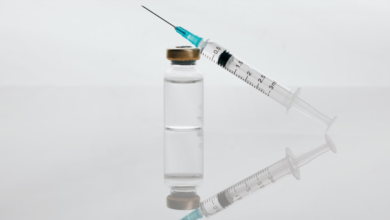Ensuring Patient Data Security with HIPAA-Compliant Call Centers

In today’s digital healthcare environment, protecting patient information is not just a priority it is a legal and ethical obligation. With the increasing use of telehealth, online scheduling, and remote communications, the role of a HIPAA compliant call center has become essential. These centers serve as an extension of medical facilities, managing everything from appointment bookings to patient inquiries, all while safeguarding sensitive health data. As breaches continue to rise across the healthcare sector, aligning call center operations with HIPAA protocols is a necessary step toward compliance and patient trust. Understanding the critical features and functions of these secure communication hubs can help healthcare providers ensure that their systems are both efficient and legally sound.
What Makes a Call Center HIPAA Compliant
A call center that meets HIPAA standards follows a set of strict administrative, technical, and physical safeguards to protect protected health information (PHI). This includes employee training, secure data storage systems, encrypted communication channels, and well-defined access controls. Every call, voicemail, and record handled must adhere to confidentiality regulations. The implementation of such protocols is not simply a matter of installing software. It requires a comprehensive approach where team members are continually educated on privacy policies and where workflows are designed to avoid accidental disclosures. Each touchpoint with a patient should be handled with caution, accuracy, and professionalism.
See also: Hormone Therapy’s Role in Bone Health After Menopause
The Role of Compliance in Building Patient Trust
Patients are more likely to share vital health information when they feel their data is secure. A compliant call center strengthens this trust by showing patients that their privacy matters. When patients call for appointment scheduling, test results, or follow-ups, they rely on the system’s integrity to keep their data confidential. Any slip in security could not only result in legal action but may also severely damage the provider’s reputation.
The need for compliance is amplified in high-volume environments where hundreds of calls are processed daily. In these cases, ensuring that staff is well-versed in protocol can significantly reduce the risk of violations.
Beyond Security: Why Compliance Enhances Operational Efficiency
While the main objective is to maintain data privacy, compliance can also streamline operations. With clearly defined procedures in place, a complaint call center eliminates confusion, minimizes errors, and boosts productivity. Moreover, understanding how HIPAA compliance works in health call centers allows managers to evaluate risks and identify operational improvements.
For example, encrypted software solutions that log and monitor calls not only ensure compliance but also provide valuable data analytics that can help refine patient engagement strategies. These benefits support both short-term service delivery and long-term system performance.
Digital Marketing and HIPAA Compliance
With the growing overlap between healthcare and digital marketing, patient data often travel across various channels. Maintaining privacy in such multi-channel operations can be challenging. According to recent discussions on the importance of HIPAA compliance in internet-based marketing campaigns, healthcare providers must exercise caution when integrating call centers with online forms, CRMs, and marketing platforms.
Whether it’s collecting emails for appointment reminders or offering telehealth consultations via mobile apps, every channel must be compliant. The same principles that govern phone-based communication must be extended across all digital mediums to ensure consistency and security.
Conclusion
Ensuring patient data security through HIPAA-compliant call centers is no longer optional in today’s healthcare landscape. These centers not only protect sensitive information but also play a vital role in building patient confidence and operational efficiency. As digital tools and marketing channels become more integrated with patient communication systems, the scope of compliance must expand accordingly. By investing in compliant practices, healthcare providers demonstrate a commitment to protecting patient privacy while delivering high-quality care.






